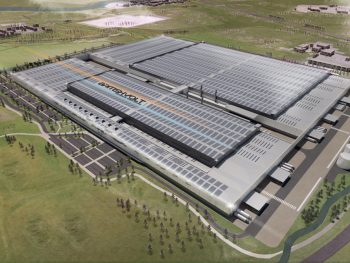Battery startup Britishvolt calls in administrators after rescue talks fail
Electric car battery startup Britishvolt has collapsed into administration after plans for a rescue deal failed.

Britishvolt had been looking to start producing “world-class” lithium-ion batteries, originally by the end of 2023
The company, which employed some 300 staff, confirmed Tuesday lunchtime that EY had been brought in to handle insolvency after it filed notice for administration to the courts.
Although the startup had said on Monday that it was in talks over a “majority sale” of the business, discussions failed. According to reports, a late takeover offer had not been backed by the company’s creditors.
Britishvolt had been working to launch a gigafactory in Northumberland, helping to ensure a future for battery production in the UK. The work would have supported government plans to make the UK automotive industry a leader in electric vehicles.
However, its future had been looking bleak in recent months. While the startup secured £1.7bn funding from UK asset investment giant Abrdn and fund manager Tritax in January 2022 on the back of a government pledge of £100m for the project, it had been forced to delay plans due to “difficult external economic headwinds including rampant inflation and rising interest rates”.
The company secured short-term funding in November 2022 after the Government rejected its bid to draw down nearly a third of the £100m funding early. But according to the BBC, the board decided on Monday there were no viable plans to keep the business afloat.
Its collapse leaves the UK with just one gigafactory at present, located at the Nissan plant in Sunderland. That’s despite the UK’s auto sector saying for years that bold action is needed on domestic battery production to secure the industry’s future.
Independent green motoring consultancy New Automotive said the news that Britishvolt was filing for administration was deeply disappointing and “a blow to the UK’s transition to cleaner, cheaper transport”.
Ben Nelmes, chief executive, continued: “Delays to the Government’s Zero Emissions Vehicle (ZEV) mandate have created additional uncertainty around rates of EV uptake and future demand for EV batteries.
“The UK urgently needs a green industrial strategy to prevent the trickle of bad news about the UK car industry turning into a torrent in a few years’ time.”
According to the BBC, industry and government sources remain confident that the Blyth plant at the former power station will eventually be built.
In January 2022, Britishvolt had said the gigafactory would build enough cells each year for over 300,000 electric vehicle battery packs, equivalent to some 25% of current UK vehicle manufacture
The plant was also expected to create 3,000 jobs and a further 5,000+ indirect roles in the wider UK supply chain.

